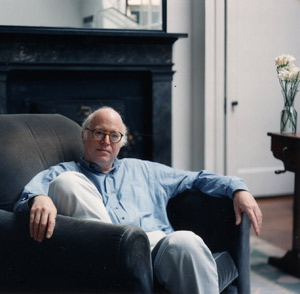|
Date: Thursday, December 3, 2009
Time: 7:00 p.m.
Location: Getty Center, Harold M. Williams Auditorium
Admission: Free; reservations required. Call (310) 440-7300 or use the "Make Reservation" button below.

Since at least the Renaissance, fine artists have proudly distinguished their creativity from the handiwork of craftsmen. But are there really such clear boundaries between art and craft, expression and technique? A finished artwork, argues Richard Sennett in his recent book The Craftsman, is the product of both the mind and the hand.
In this inspiring and thought-provoking lecture, Sennett suggests that the desire to do a job well for its own sake is a key human impulse. The craftsman embodies this idea; but in postindustrial society, workers of all sorts, not just manual laborers, need to recover the values of good craftsmanship. Perhaps this is one of the reasons why photographers such as Irving Penn have been drawn to working-class people as subjects—visual reminders of the importance of good work.
About Richard Sennett
Richard Sennett is professor of sociology at New York University and the London School of Economics. He is the author of numerous books about cities, labor, and culture, including the influential The Fall of Public Man, first published in 1977, and The Corrosion of Character, released in 1998. He co-founded the New York Institute for the Humanities with Susan Sontag and Joseph Brodsky in the 1970s, and has been president of the American Council on Work. Sennett has studied cello since he was six years old, and has played chamber music for pleasure since a hand injury cut short his budding professional music career at the age of 20.
|
 |


|
|
Previously in the series:
October 8, 2009
Can anyone truly tell reality from illusion? When we pride ourselves on our ability to distinguish real from fake, forgery from masterpiece, are we only engaging in self-deception?
Filmmaker Errol Morris and sleight-of-hand artist Ricky Jay, who have collaborated on Morris's New York Times blog, considered these questions in a wide-ranging discussion of art and perception, offering a thought-provoking evening that challenged what we think we know about art and about ourselves.
Morris is a filmmaker, writer, and cultural critic best known as the director of probing, visually seductive films including The Fog of War: Eleven Lessons from the Life of Robert S. McNamara (Academy Award for best documentary in 2004), Standard Operating Procedure, The Thin Blue Line, and Gates of Heaven.
Jay is an author, actor, historian, collector, scholar, and sleight-of-hand artist, as well as one of the world's foremost thinkers on perception, deception, and illusion.
June 2, 2009
Bill Ivey and Lewis Hyde discussed the social value of the arts, of the cultural commons, and how policy and theory should ensure open access to creative work.
Ivey, chairman of the National Endowment for the Arts from 1998 to 2001 and director of the Country Music Foundation from 1971 to 1998, was appointed by President Obama to lead his transition team on arts and the humanities. He is author of the recent book Arts, Inc., which details "how greed and neglect have destroyed our cultural rights."
Hyde is a poet, essayist, translator, and cultural critic with a particular interest in the public life of the imagination. A MacArthur Fellow and former director of undergraduate creative writing at Harvard University, Hyde is the Richard L. Thomas Professor of Creative Writing at Kenyon College.
|
 |
|

